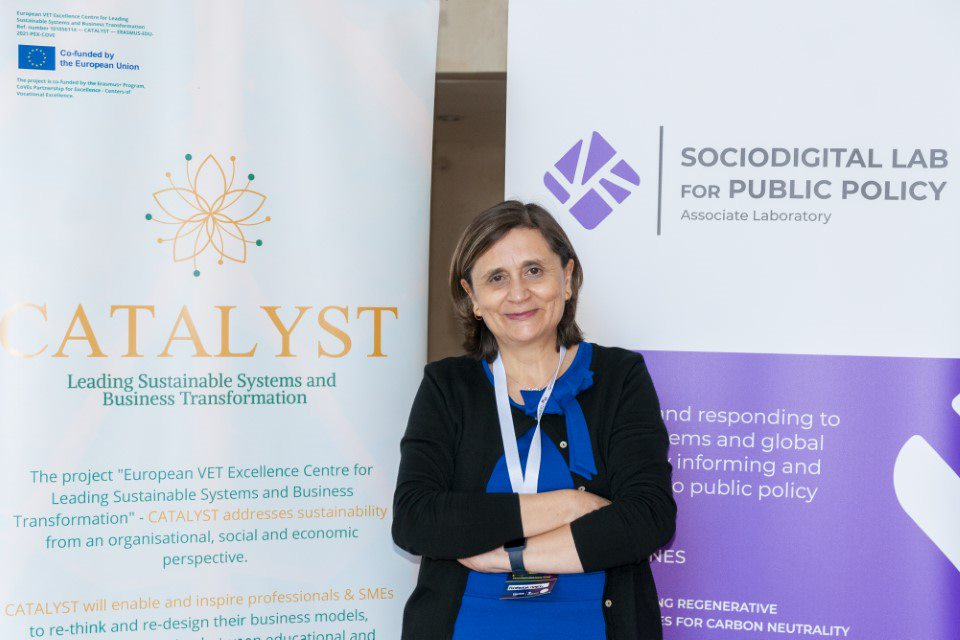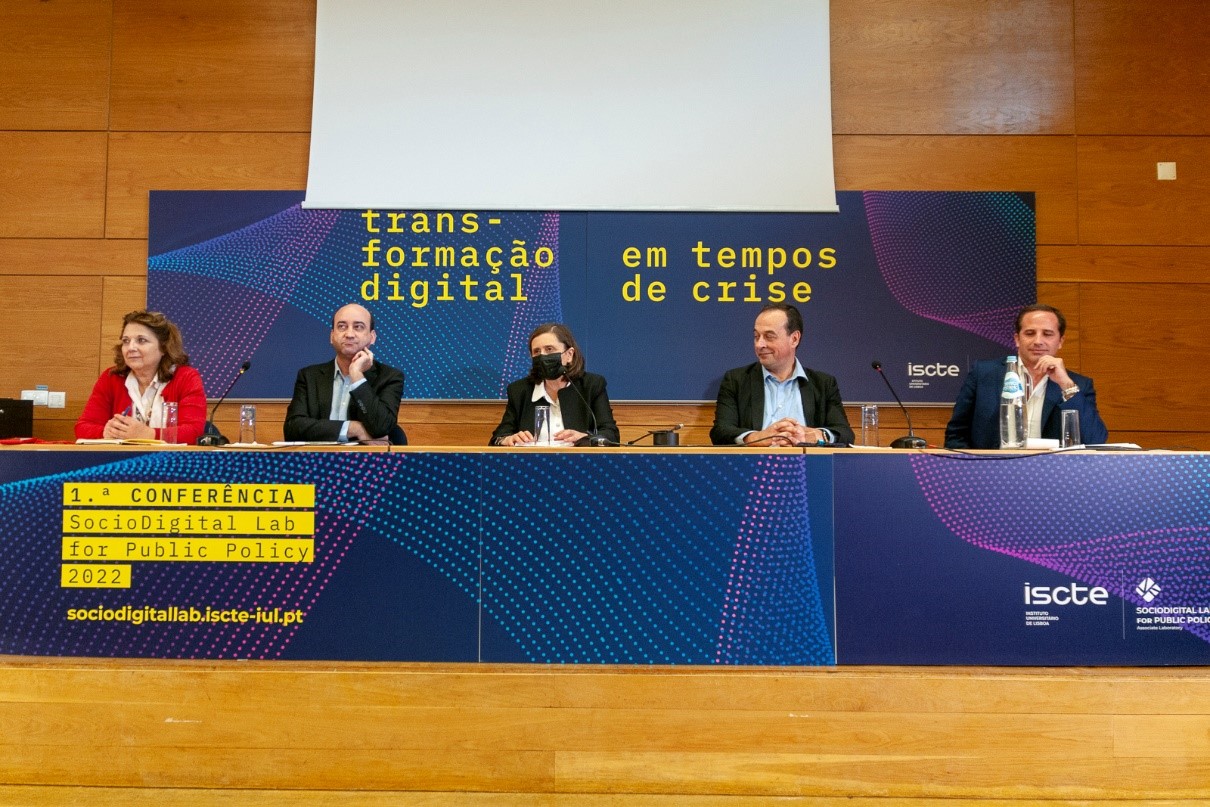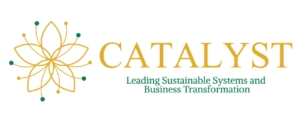National Round Table in Portugal: Challenges and Perspectives in Leading Sustainable Systems and Business Transformation
National Round Table in Lisbon
"Challenges and Perspectives in Leading Sustainable Systems and Business Transformation" round table was held on the 29th of November 2022, at Iscte-Instituto Universitário de Lisboa, between 2 pm and 3:30 pm. Professor Florinda Matos organised this round table within the framework of the SocioDigital Lab Conference. There were 96 people (in person and online) attending this round table, representing, in the majority, the education and training sector, but also public organisations and companies. This roundtable was divided, essentially, into two parts: one being the debate between the spokesperson of the table, followed by a second part, the discussion with the attendees and the audience.
This roundtable aimed to hear different stakeholders' perspectives and establish a dialogue between them. The roundtable participants are the academic area (represented by IST - Instituto Superior Técnico), the industry (represented by CENTIMFE and PLASFIL company), and the public sector (represented by FCT- Fundação para a Ciência e Tecnologia).

Roundtable perspectives
Regarding the business perspective, it was concluded that it is necessary to teach companies that sustainability is a concept allied to the long-term strategy – immediate actions will only have results in the future. Thus, this concept is associated with the longevity of companies. In terms of public policy, 28% of companies in Portugal are inattentive or unenlightened in what concerns SDGs. Thus, public policies and regulations come into place. In the long run, the real challenge is to meet the requirements of execution, more than questioning the ability of financial aid by the public or private sector. Finally, in what concerns education and training, the importance of the education field to improve microbusinesses' literacy and develop strategies to enable them to create new business models (and their challenges) is one to keep in mind. People need time to learn, especially if they do not do so in a considerable amount of time (whether to adapt to new technologies or retain knowledge).

Challenges and Recommendations
One of the main challenges is people adapting to new ways of working, learning at work, and continually acquiring knowledge. At the company level, there is a dichotomy between costs and investments (which have yields that can be tangible or intangible). It would be naïve to think yields have instant returns to a company's profitability, so, in the long run, growth is possible, but it must be in the societal context in which the company is.
One of the recommendations is to follow SDGs, although keeping in mind that it is extremely difficult to reach all 17 goals proposed. Another one is raising awareness on environmental and social issues that may arise from not knowing the consequences of choosing to buy a not-so-ethically produced product, starting in schools, and going to companies. As consumers, most of the time, we need help understanding the reasons behind it; thus, the solution must start by teaching companies a guide to why SDGs are important. In conclusion, one of the solutions must start by teaching companies a guide to why SDGs are important, consequently, to consumers, it is easier to also understand the importance of SDGs. At the same time, public policies have a huge role in persecuting new measures on how people behave in society through financial and fiscal instruments, as well as the definition of compelling goals to move predefined goals forward.
How to Get Involved
If you want to become part of our CATALYST Network and support our activities, fill in the form of interest.
Follow us on social media and get the latest news.



